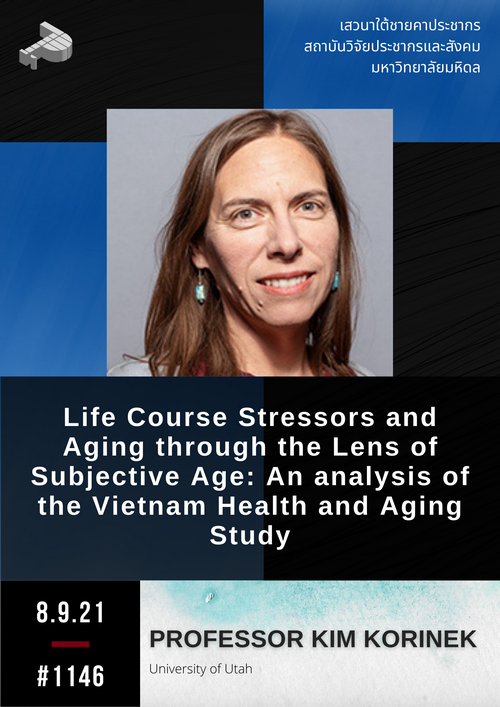Evidence is mounting documenting subjective age’s association with numerous chronic diseases. Extending analyses to biological, sociological and psychosocial characteristics in culturally and materially diverse low-middle income populations will improve understanding of the underpinnings of subjective age. We utilize data from the 2018 Vietnam Health and Aging Study (VHAS) to analyze a series of biological, psychosocial, and sociodemographic correlates of subjective age. The VHAS sample (N=2,447) comprises older adults experiencing diverse early-midlife war-related stressors, recent life event stressors, and livelihood conditions, which jointly influence physical and mental health. Biomarkers include anthropometry (weight, height, middle-upper arm and calf circumference), physical performance tests (peak expiratory flow and grip strength), HbA1c and hematology measures obtained through point-of-care assays of capillary blood. Key psychosocial covariates include recent psychological distress, life event stressors and war-related stressful events and living conditions. Models are adjusted for a series of demographic, socioeconomic, and self-reported health outcomes. Our outcome variable is a categorical assessment of subjective age (feeling older, younger, or approximately one’s age). Nearly half of the VHAS sample reports feeling older than their chronological age. Multinomial logistic regression analyses demonstrate that old subjective age is more likely among subjects with middle-upper arm and calf circumference below established thresholds and low BMI. Hematocrit levels are inversely associated with subjective age. Among the strongest predictors of older subjective age are recent life event stress, psychological distress, multiple ADLs and comorbidities. Biomarkers of undernutrition, in particular mid-upper arm circumference, calf circumference, BMI and hematocrit, demonstrate significant associations with subjective age in this middle-income, post-conflict setting. The toll of difficult, post-conflict living conditions, manifest in psychological distress and recent life event stressors, leads many to feel older than their chronological age.
Kim Korinek, University of Utah; Eleanor Brindle, University of Washington; Jefferson Schmidt, University of Utah; Tran Khanh Toan, Ha Noi Medical University; Zachary Zimmer, Mount Saint Vincent University
